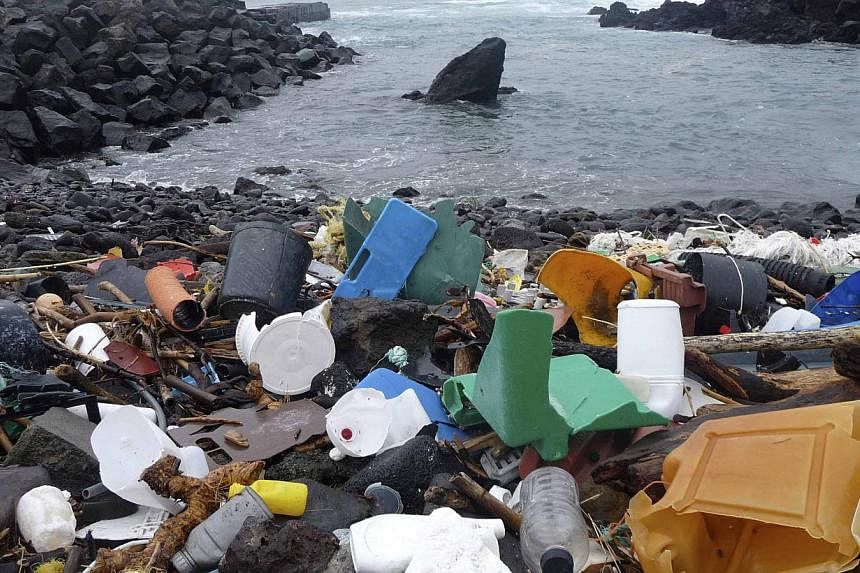SAN JOSE, United States (AFP) - Shoddy waste management and littering across the globe likely added eight million metric tonnes of plastic to the ocean in 2010, posing significant dangers to marine life, scientists said Thursday.
The five worst offenders listed in the study published in the journal Science were China, Indonesia, the Philippines, Vietnam and Sri Lanka.
The United States ranked 20th.
The study is the first of its kind to measure the amount going in from 192 countries with a coastline in 2010, instead of the amount currently in the ocean, which previous studies have examined.
The method for determining that amount was a mathematical model that was based on the per-person waste generation for 192 countries with a coastline.
One per cent of the waste was presumed to be plastic, and another one per cent was presumed to be mismanaged, meaning litter or waste was dumped on land and not properly contained.
"It can get worse. If we assume a business as usual projection - with growing populations, increasing plastic consumption and increased waste generation - by 2025 this number doubles," Jenna Jambeck, a researcher from the University of Georgia told reporters at the annual meeting of the American Association for the Advancement of Science in San Jose, California.
Middle income countries with rapidly developing economies tended to be the biggest contributors of plastic trash in the ocean because they were least likely to have developed adequate waste management systems to keep pace with growth, Jambeck said.
The United States was the only wealthy nation in the top 20, and its ranking was due to the high rate of waste generation by its citizens, coupled with the nation's large amount of coastline.
PLASTIC OUTFLOW
"Using the average density of uncompacted plastic waste, eight million metric tonnes - the midpoint of our estimate - would cover an area 34 times the size of Manhattan ankle-deep in plastic waste," said co-author Roland Geyer, an associate professor at University of California Santa Barbara's Bren School of Environmental Science and Management.
"Eight million metric tonnes is a vast amount of material by any measure. It is how much plastic was produced worldwide in 1961."
Co-author Kara Lavender Law, a research professor at the Massachusetts-based Sea Education Association, said the team's study "is the equivalent of measuring what is coming out of the faucet rather than what is already in the bathtub."
The amount going in is 20-2,000 times larger than the existing estimates of plastic floating in the ocean, she said.
It remains unclear what happens to all that plastic in the ocean - though certainly some floats, some is suspended in the water and some falls to the ocean floor - and scientists are concerned about the effect of such pollution of fragile fish and marine life that consume plastic fragments.
Solutions for the world's plastic problem include improving waste management and cutting down on plastic consumption, the researchers said.
Since the top 20 countries accounted for 83 per cent of mismanaged plastic waste, such efforts should be concentrated on keeping plastic out of the ocean, not trying to clean it up after the fact.
"We need to prevent plastic from entering oceans in the first place," said Geyer.
"Helping every nation develop a sound solid waste management infrastructure is a top priority," said Geyer.
Increasing the plastic re-use and recycle rates "is equally important," he added.

